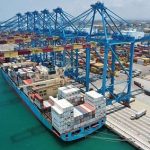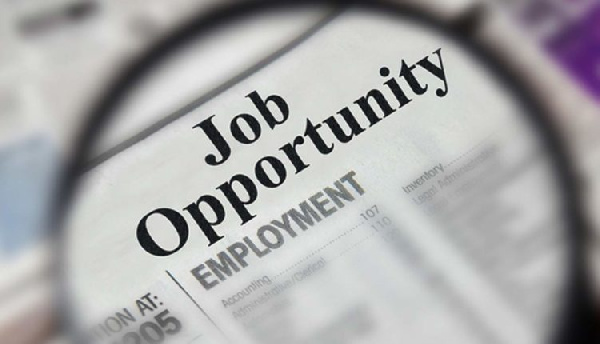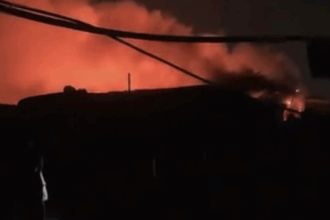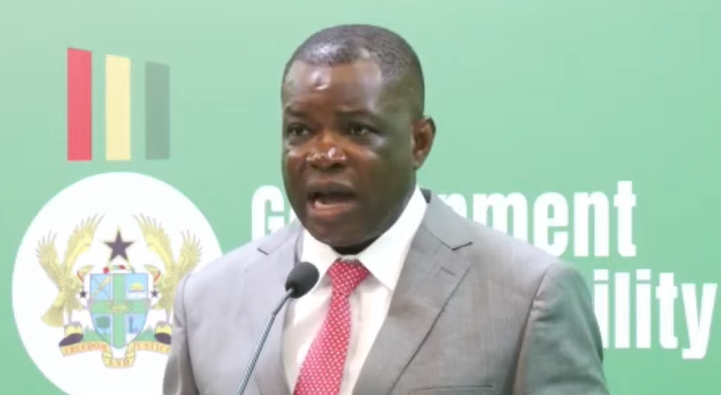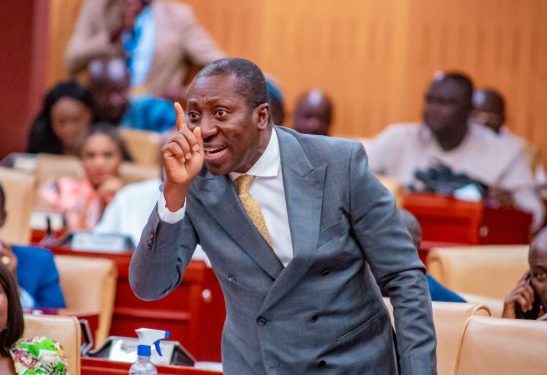The ECOWAS Community Court of Justice (CCJ) has awarded a cost of $750 against Ghana for undue delay in the Agyapa case.
The decision comes after a Chief State Attorney, Dorothy Afriyie Ansah, asked for an extension of time for Ghana to file their response.
A three-member panel presided over by the President of the CCJ, Justice Edward Amoako Ansah, gave the directive on Wednesday, March 23.
After awarding the extension of time, the CCJ ordered Ghana to file their response by Monday, March 28, 2022.
Transparency International, Ghana Integrity Initiative (GII) and the Ghana Anti Corruption Coalition (GACC) sued Ghana in 2021 at the CCJ over the Agyapa deal, claiming that due process was not followed.
The three anti-corruption groups, in their suit, questioned why the government failed to engage and consult Ghanaians, who are the true owners of the mineral resource.
They are thus praying the court to pull the brakes on the deal and for the Ghana government to follow due process.
When the case was called on Wednesday, the Chief State Attorney urged the court to permit the AG’s office to file their defence despite failing to file one after many months.
She explained that as the officer tasked to handle the case, she suffered post-COVID-19 complications and was therefore unwell.
But legal team for Transparency International led by Olumide Babalola argued that their reply to AG’s defence was as far back as July last year.
He insisted the AG has nothing to respond to, adding that if they would be obliged time to file, then the team will need a cost of $1000.
Mr Babalola added that he flew into the country from the United Kingdom and, therefore, deserves to be reimbursed for the cost.
“They were served as far back as July 2021. I flew in from the UK two days ago. The expense is unquantifiable.” He said.
In his ruling, the presiding judge said that the late filing with illness resulting from COVID-19 as justification is not tenable.
“The AG is an institution. It’s not an individual. If you were not here today, does it mean no one will come?” He quizzed.
The court, therefore, ordered the AG to pay Transparency International $750 dollars.
The case has been adjourned to Wednesday, March 30, for continuation.
The Agyapa deal
On August 14, 2020, Parliament approved the Agyapa Minerals Royalties Investment Agreement and four related documents to allow for the monetisation of Ghana’s future gold royalties.
In the deal, 75.6% of royalties of at least 16 gold mining companies will go into Agyapa Royalties Ltd.
The company will list on the London Stock Exchange and the Ghana Stock Exchange and float 49% shares valued at $1bn.
It hopes to get investors to buy shares while Agyapa Ltd collects gold royalties from future mineral resources to pay dividends to shareholders.
Agyapa Royalties Ltd is also incorporated in a tax haven, British channel island, Jersey, where companies don’t pay corporate tax. It means the company will enjoy considerable tax reliefs.
But a wave of red flags raised by the 22 civil society organisations and the minority in Parliament compelled the government to hasten with caution.
The voices against the deal raised concerns about potential value for money, the registration of the company in a tax haven, as well as the lack of consultation as the minority walked out on the deal on the day the majority passed it.
With the minority raising hell while the CSOs threatened legal action, the government suspended the implementation of the deal when the Special Prosecutor’s Office stepped in to probe the deal on suspicion of allegations of corruption.
The former Special Prosecutor Martin Amidu, in a letter dated September 10, made a formal request to parliament to provide all the information regarding the approval of the deal by the House.
This compelled the government to temporarily suspend the deal.
Almost two months after his request, Mr Amidu, in a 64-page document, raised questions about the processes leading to the selection of transaction advisors for the Agyapa deal, which he described as “opaque”.
What Amidu’s report said
- The Special Prosecutor’s work on the Agyapa deal was not an investigation. It is an audit to ensure the agreement complied with the law. The difference is that an investigation would suggest criminality.
- The appointment of the Transaction Advisor in the Agyapa deal should have been brought to parliament for approval because it is an international economic transaction. It is international because the government engaged a South African firm, IMARA Corporate Finance Limited (Pty), as a Transaction Advisor.
- In selecting the transaction advisor, the company had to get a local partner. IMARA selected Databank, but Special Prosecutor says this is a “decoy”.
- The report wants to know how Databank is being paid as a local partner. He said this arrangement is “opaque”, which raises “reasonable suspicion of bid-rigging, and corruption activity, including the potential for illicit financial flows and money laundering.”
- There is a zero-chance that the advice given by the Transaction Advisor would be neutral and impartial because of individual interests at the Ministry of Finance and IMARA/Databank.
- Chief Director of the Ministry of Finance should have signed the agreement, not the Deputy Minister of Finance, Charles Adu Boahen. This is because the Public Financial Management law gives the Chief Director that power to bind the Finance Ministry to an agreement.
- Several service providers and underwriters, including Africa Legal Associates, the legal firm owned by the president’s cousin Gabby Otchere Darko, may not have been chosen on merit. This is because they were not selected in accordance with the Public Procurement Authority.
- He believes the selection of the governing board members of the Minerals Income Investment Fund (MIIF) could not meet the litmus test of the prevention of corruption. The Chairman and the other Board members indicated “a real Likelihood of almost all of them being affected by partisan considerations” in the discharge of their duties.
- Parliament did not properly scrutinize the agreement, and this makes corruption attractive because “the risk is low”.
Fast forward, the deal is back in Parliament for a second review.




